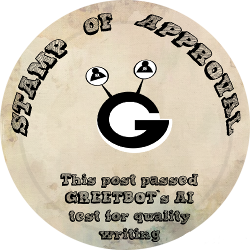Everyone is talking about the end of the banks. Bitcoin as a new means of payment. In another area, banks have already lost: Trade Finance. Few consumers are aware of trade finance, and it is a huge branch of the financial industry. The global market volume is around $ 3 billion annually. It could be ten times bigger. Only: the banks do not succeed.

Trade finance becomes the link between the digital and the analog world. Every year, we ship more goods around the world than ever before. We import and export huge quantities of goods. The trading partners, such as in the Far East, are often not personally known. Should the supplier first send the goods or pay the recipient? There is uncertainty. So far, banks have acted as trusted intermediaries. Both trading partners turn on their bank, which guarantees the payment. All are happy! Nearly. The service is very expensive and slow. Documents are sent through the world. Each piece of paper wanders through numerous hands. Fast is different.
The first private blockhain for trade finance
The company Brighann Cotton first insured a delivery from Texas to Qingdao (China) in 2016 via a private blockchain. Both parties follow the delivery in real-time. Nobody needs to check more papers to see if the container has really arrived at the port. No paperwork, less uncertainty.
The banks account for many individual steps, which were previously implemented manually by employees. Every step is extremely error-prone. The slightest mistake means in doubt that the guarantee of the bank will lapse.
Cameron Austin, General Manager of Brighann Marketing Inc, said, "The benefits of lower costs and increased security by reducing errors, risk and time allow companies to become more efficient."
There are different designs for the blockchain. IBM Research has introduced a private approach in which each participant sees only the bare essentials. Customers are still walking the path of traditional banking. Only the previously necessary documents are omitted.
Some startups experiment with a completely transparent blockchain where everyone can see everything. Sooner or later, banks would no longer be involved in this process.
The advantages are clear: The data are immutable secured, consequential manipulation is excluded. Documents can no longer be lost or disappear inexplicably. So far, a tiresome problem. All this costs fees, a lot of nerves and especially it costs time.
Regulation slows down innovation
The increasingly strict regulation makes it increasingly difficult for banks to do business. The Basel II and III agreements of the G10 countries promote long-term risks through short-term liabilities. However, Trade Finance often involves financing from a few weeks to months. Trade finance will therefore become less profitable. Naturally, smaller companies lose their market access first. The delivery of a medium-sized company sometimes decides on a successful or loss-making year. Large companies have more market power (require advance payment) and can cope with losses better.
In addition, stricter know-your-customer (KYC) rules make international trade more difficult. Banks need to know and understand their customers and their business model. This applies to private customers, companies and partner banks. KYC should stop terror financing and money laundering. The effort for this has recently increased sharply. The new Anti-Money Laundering Directive of the European Union is now intended to extend these rules to cryptocurrencies.
Critical is it in large countries such as Iran and Russia, which are occupied by several international sanctions. Trade is not generally prohibited, but limited. What is allowed, what is forbidden, is like a minefield. Nobody knows if it will be tomorrow what has been agreed today. Many banks areaving to avoid sensitive fines. This hurts companies who would like to send legal products. Your house bank can not support you.
An open system is good for the trade
An independent distributed ledger system would be neutral. Everyone gets access and can negotiate the conditions individually with his contractual partner. Low costs enable even small businesses to insure and export their goods. Lower entry barriers (especially low costs) allow a variety of companies to make their export safer. Thus, the market volume of Trade Finance is growing enormously.
The rapid development of the Internet of Things enables better tracking of worldwide shipping and quality control. When distance is too long and confidence in action is not always sufficient, transparency is the best alternative.
There are still many hurdles to overcome. The banks fear losing a billion dollar business. Young start-ups have a hard time pushing into the foreclosed market. Regulation does not help them get started yet. Too many open question marks and uncertainties are in the room. But the first step has already been taken.
Hi. I am @greetbot - a bot that uses AI to look for newbies who write good content!

Your post was approved by me. As reward it will be resteemed by a resteeming service.
Resteemed by @resteembot! Good Luck!
The resteem was paid by @greetbot
Curious?
The @resteembot's introduction post
Get more from @resteembot with the #resteembotsentme initiative
Check out the great posts I already resteemed.